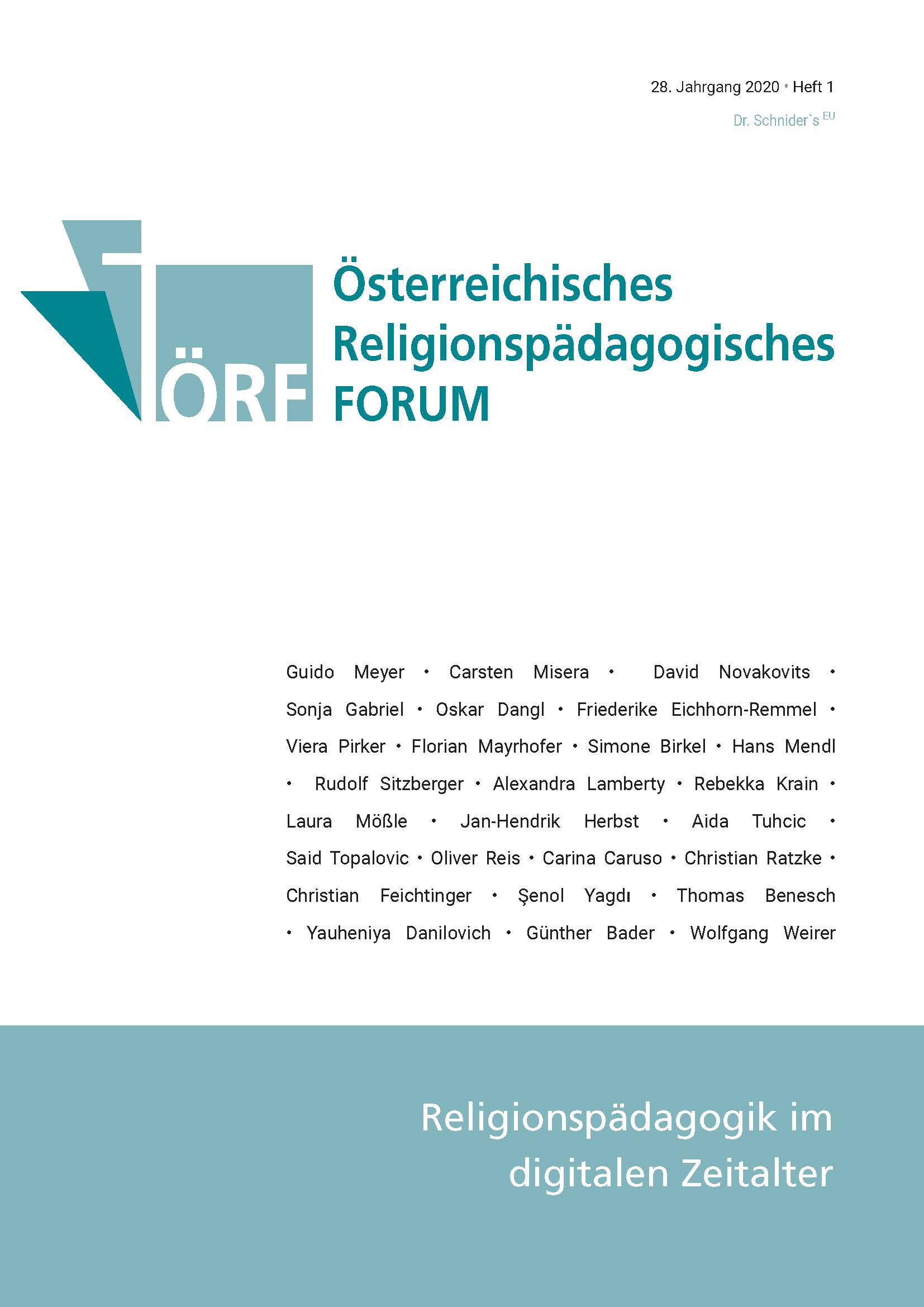"You are a media class!"
Digitized practices in religious education and implications for professional teaching and development
DOI:
https://doi.org/10.25364/10.28:2020.1.12Keywords:
digital practices, digitization, digital literacy, teachers' professional development, religious educationAbstract
Based on results on media usage and explanations on skills related to media, the article focuses on digital practices in religious education. To analyze the transformation of digital practices associated with digitization, the actor-network-theory is presented and the terms digitization and digitality are defined. One vignette (in the form of a description of one lesson) exploratively explore the question of how teachers are able to accept the challenge of digitality, to what extent they open digital practices and to what extent these are linked to traditional practices.
Downloads
Published
2020-05-22
How to Cite
Caruso, C. and Reis, O. (2020) “‘You are a media class!’: Digitized practices in religious education and implications for professional teaching and development”, Austrian Journal of Religious Education, 28(1), pp. 212–234. doi: 10.25364/10.28:2020.1.12.
Issue
Section
Article - topic oriented

